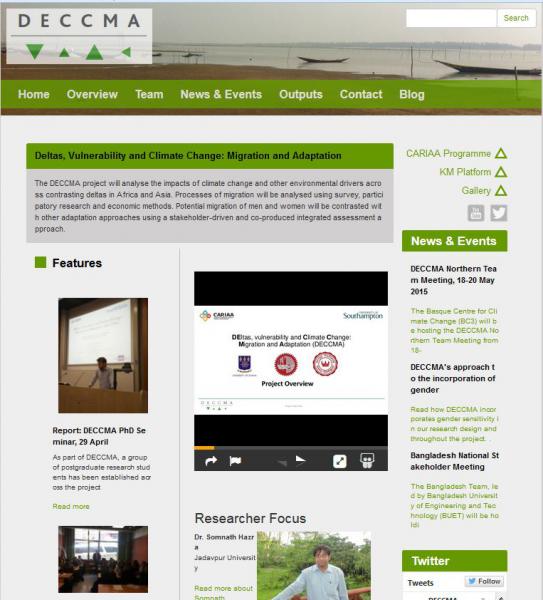DECCMA
|
DEltas, vulnerability and Climate Change; Migration as an Adaptation |
 |
|
|
With their large and often poor populations in low-lying areas, deltas have long been seen as highly vulnerable to climate change and non-climate drivers with, in the most extreme, large-scale displacement of people being the result. Migration is a complex process which is already occurring in all deltas, largely independent of climate change. Most research on deltas and migration tends to focus on individual system elements and issues rather than taking a systems-level perspective. This fails to consider the wider consequences of climate change and the interdependence between these phenomena and people’s behaviour. In contrast to previous research, this programme of research will take a systemic and multi-scale analytical perspective to understand gendered vulnerability and adaptation in deltas under a changing climate by analysing four contrasting populous delta systems in South Asia and Africa where there is significant potential for migration. |
||
|
The dual research aims are:
|
||
|
Start date: February 2014 |
End date: November 2018 |
|
|
Programme: Collaborative Adaptation Research Initiative in Africa and Asia (CARIAA) |
||
|
Partners in the DECCMA consortium |
||
|
University of Southampton - Coordinator |
||
|
Key people involved in BC3 |
||
|
Dr. Anil Markandya |
||
|
Objectives and concepts The dual research aims are:
The objectives are:
This knowledge will encourage appropriate gender-sensitive policy responses to ensure that the most vulnerable in deltas are able to adapt, and how adaptation policy effectiveness can be maximised. The analysis will guide sustainable and equitable development of deltas and will:
|
||
 |
This project is funded by the International Development Research Centre (IDRC). |
|

